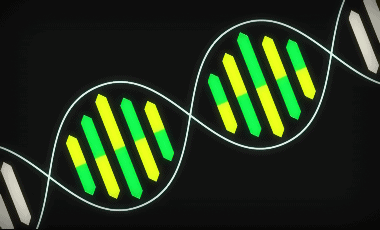The Origin of Life, two world views, Darwinian evolution theory vs Biblical Creation.
The RNA World Hypothesis is presented in the first half of this video from Dr. Pierre Durand, University of the Witwatersrand, Johannesburg. PhD student Nisha Dhar Quote (Via TImes Live):
- ‘RNA molecules were the first molecules which could have given rise to life.’
- ‘This event is believed to have taken place possibly 4 billion years ago, at a time when a young earth was a hostile place with a volcanic activity and an atmosphere that had yet to contain oxygen. RNA, said Durand, was hardy and would have survived these kinds of conditions.’
Presenting the Biblical Creation science explanation for the origin of life, Dr. James M. Tour (PhD., T. T., and W. F. Chao Professor of Chemistry Professor of Computer Science Professor of Materials Science and Nano Engineering — Rice University. Smalley-Curl Institute and the NanoCarbon Center.)
APOLOGETIC PRESS notes this of the RNA World Hypothesis:
- [Editor’s Note: The following article was written by A.P. auxiliary staff scientist Will Brooks and one of his students. Dr. Brooks holds a Ph.D. in Cell Biology from the University of Alabama at Birmingham and serves as Assistant Professor of Biology at Freed-Hardeman University.]
….Evolutionists would have us to believe that non-living elements and molecules joined together and developed increasing biological capabilities. Those who believe in intelligent design reject this hypothesis, insisting that neither RNA nor living cells are able to evolve spontaneously. While some disagreement exists among those in the evolutionary community on the time frame for such alleged reactions to occur, the consensus is that, given large amounts of time, single-celled bacteria were formed. But all known biological principles militate against this notion. Even billions of years could not provide mechanisms for the reaction products to evolve advantageous characteristics and form DNA and cell proteins, let alone create strings of RNA nucleotides, arriving at just the right sequence in order to code for a functional protein. The four nucleotide bases that form RNA (adenine, guanine, cytosine, and uracil) can be arranged in an exponential array of combinations and lengths. For an actual, functional protein to be coded, a precise sequence of nucleotides must be obtained. Forming the code for even one protein by evolutionary means is impossible, without even considering the necessity of the number that work together in a single cell.
There is no scientific evidence to suggest that RNA is spontaneously being created and capable of forming pre-cellular life today. While some artificial ribozymes have been created in the laboratory (reviewed in Chen, et al., 2007), there are still significant holes in reproducing an RNA world to support the hypothesis. The ribozymes created artificially lack the abilities to sufficiently process themselves, and there is no evidence of them producing large quantities of advantageous nucleotide sequences. Moreover, no system has ever created cellular life. There is even significant debate among scientists over the conditions and constituents of a “prebiotic Earth” model.
The RNA World Hypothesis is simply another attempt by scientists to explain the origin of life to the exclusion of the divine Creator. Given the absolute impossibility of life originating from the reactions of non-living matter, it can be justified that RNA did not predate other biological molecules. All biological molecules were created together to work in concert. RNA was designed to be the essential intermediate between DNA and proteins, making our cells capable of sustaining life as it was created. The designer of this system must be the intelligent Designer, the God of the Bible.
FOLLOW UP ARTICLES
- About That RNA World Hypothesis (EVOLUTION NEWS & SCIENCE TODAY)
- Evolutionist Criticisms Of The RNA World Conjecture (CREATION.COM)
- The RNA World: A Critique (ORIGINS & DESIGN 17:1)
- The RNA World Hypothesis: The Worst Theory Of The Early Evolution Of Life (except for all the others) (US NATIONAL LIBRARY OF MEDICINE
NATIONAL INSTITUTES OF HEALTH)
